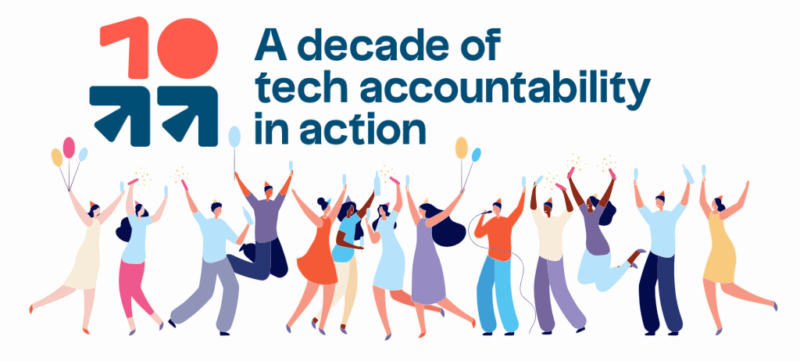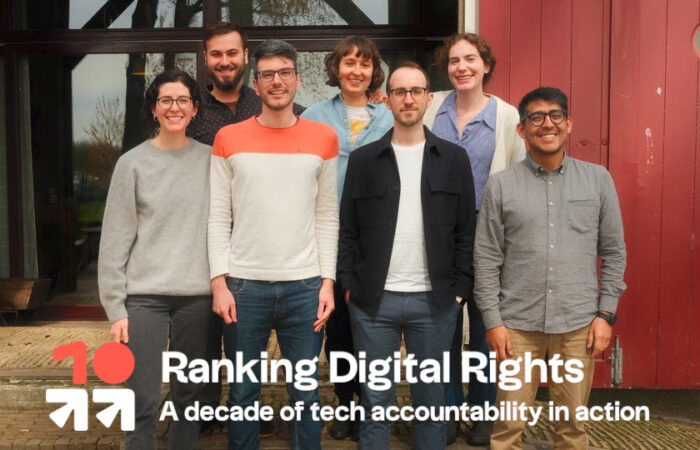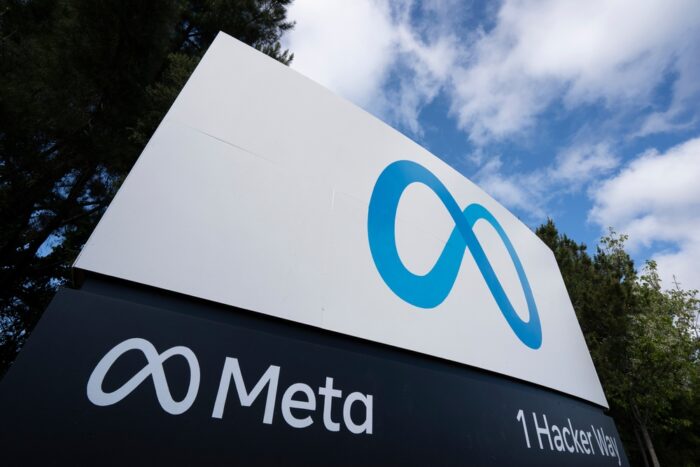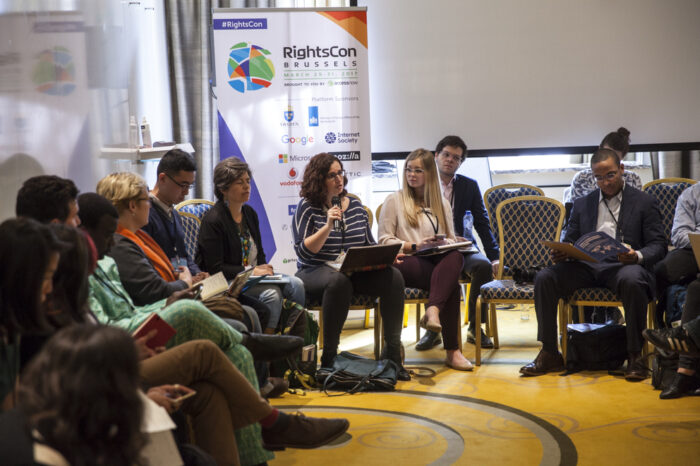
RDR is 10 years old! Over the last decade, Ranking Digital Rights has laid the bedrock for corporate accountability in the ICT sector and exerted pressure on the most powerful of these companies to uphold their obligations to respect and promote human rights. To mark the occasion, we’re taking a look back at five of our proudest accomplishments over the past decade:
-
Setting the Standard for Human Rights in Big Tech: RDR’s Corporate Accountability Index, based on universal human rights principles, has become a gold standard for measuring how well ICT companies respect key human rights such as privacy and freedom of expression.
-
Raising the Baseline for Human Rights in Big Tech: With each new edition of our index, RDR has incentivized a race to the top among companies with many making notable policy improvements in the past decade as a result.
-
Galvanizing the Conversation Around the “Business Model”: RDR recognized early on the challenges the surveillance-advertising business model posed to human rights. Our “It’s the Business Model” report strengthened the connection between this model and the human rights harms we were observing, while galvanizing an essential policy conversation.
-
Building the Global Movement for Corporate Accountability: RDR’s global reach grew quickly, as organizations across the globe began adopting our standards for their own research projects. In 2021, RDR started partnering directly with organizations, from Central Africa to Southeast Asia, to produce essential research on the policies of ICT company policies.
-
Becoming a Go-To Partner for Investors Concerned about Big Tech: As members of the investor community have increasingly embraced both ESG and investor activism, many have turned to RDR’s data to push companies to address human rights issues through influential shareholder resolutions.
To read more about what RDR has achieved, and continues to strive for, check out “10 Years of Ranking Digital Rights: Corporate Accountability for Human Rights in the Digital Age” in New America’s The Thread →
Retreat 2023: RDR Looks to the Future

In honor of our anniversary, the RDR team held its first-ever in-person retreat to set our new strategic priorities! Our team arrived from Washington, D.C., Barcelona, Paris, and Montreal.
While we marked this milestone for RDR, we in the digital rights community at large also find ourselves at an inflexion point: Almost every week, tech companies announce the integration of new generative AI into their services. With this in mind, RDR set out the following strategic priorities:
1. Maintaining relevant standards that enhance our collaborations with all stakeholders.
2. Fostering actionable methodology that’s adaptable to new technology and a wider array of companies.
3. Catering to investor needs through an investors-first approach to our work.
4. Growing the movement: With RDR currently supporting 12 adaptations of our methodology covering 34 countries and 122 companies, we will work to both expand and refine the release of partner reports.
5. Communicating smarter by making sure that our data translate easily into media-friendly stories.
While RDR will spend the remainder of 2023 reflecting on a decade of lessons learned, we are currently working on new standards to evaluate the use of generative AI.
We are also proud to announce that our next Big Tech Scorecard will be released in fall 2024, and our Telco Giants Scorecard in fall 2025.
To find out more about RDR’s strategic priorities and future plans, read “RDR Turns 10!– And Looks to the Future” →
Digital Rights Front and Center During 2023 AGMs

The annual AGM (annual general meetings) season is upon us at several major tech companies! This year, they’re taking place in a climate of heightened human rights concern marked by rapid advances in AI and AI-powered tools across the sector. Shareholders are no exception to voicing concern, with several proposals this year aimed at protecting digital rights.
RDR supported proposals at three of the most influential Big Tech companies—Amazon, Meta, and Alphabet (Google)—aimed at promoting the use of two of the most important tools companies can use to create accountability for human rights in the digital age: human rights impact assessments and transparency reporting.
Here’s what happened at each company’s AGM:
Amazon: Beating 2022’s record of 15 shareholder proposals filed, Amazon shareholders voted on 18 this year. Once again, all proposals were voted down despite grassroots support and worker’s mobilization. Ranking Digital Rights supported a proposal developed with Open Mic and filed by the Adrian Dominican Sisters, which called for the company to improve its transparency reporting on censorship demands (you can read more about Amazon’s censorship problem with authoritarian governments in Rest of World).
Meta: At Meta’s AGM, activist investors faced an uphill climb once again due to the company’s dual-class share structure that gives CEO Mark Zuckerberg 61% of voting power. Proposal #4 called for a phase out of this system. Meanwhile, RDR supported a proposal filed for the second time by responsible investors at Mercy Investment Services and NEI Investment calling for the company to publish a human rights impact assessment of its targeted advertising business model. Both proposals received the highest level of support, though all shareholder proposals were voted down.
Alphabet: Shareholders at Alphabet are meeting today, June 2, at 9 PST to vote on 13 proposals related to digital rights and corporate governance. RDR supported a proposal calling on Google to publish a human rights impact assessment of its targeted advertising business model, filed by responsible investor organization SHARE. Like at Meta, shareholders face a challenge: Alphabet’s founders—Larry Page and Sergey Brin—control 51% of the vote through their ownership of Class B shares.
Stay tuned: RDR will have more soon on the results of this season’s AGMs and shareholders’ digital rights proposals!
Generative AI’s Overlooked Threat: Ads

In Democracy Journal, RDR’s research manager Zak Rogoff details the potential of generative AI for worsening targeted advertising, a threat we may actually be underestimating:
From his piece: “[T]argeting and personalization have long been a major goal of the advertising industry—from George Gallup’s introduction of market research in 1935 to the creation of branded characters like Tony the Tiger in the 1950s… Yet with generative AI, targeted advertising may be entering a frightening new era. These systems will…give the advertising industry a new generation of automated systems with novel capabilities and untold impacts. At my request, ChatGPT generated a name for such a hypothetical automated system: AdOverlord.”
Even without AdOverlord, targeted advertising has already become increasingly dangerous. As Rogoff points out: “In recent experiments, journalists have been able to buy ads on Facebook that promoted drinking bleach to prevent COVID-19, pushed false narratives about Russia’s invasion of Ukraine, and advocated acts of genocide against Rohingya Muslims.”
But, how much worse could this get once AdOverlord takes over the production of ads? To find out, read Rogoff’s full piece in Democracy Journal.
To Learn More, Come Meet Us At RightsCon 2023!

At this year’s RightsCon, we’ll be focused on three essential issues as we celebrate our decade anniversary: 1) Bringing the tech accountability movement to the Majority World, 2) the potential of ESG standards for digital rights, and 3) the perils of targeted advertising. We hope to see many of you there!
You can find us at the following sessions:
-
Deep pocket inspection: the promises and perils of ESG standards for digital rights
When: Tuesday, June 6 (10:15 am – 11:15 am local time)
Where: Room Tortuga
-
Too small to count, too big to ignore: scrutinizing tech companies in the Majority World
When: Tuesday, June 6 (16:30 pm – 17:30 pm local time)
Where: Room Guanacaste 2
-
Online content moderation: Let’s play “Social Media Against Humanity – Ads Edition”
When: Wednesday, June 7 (9:00 am – 10:00 am local time)
Where: Room Tucan
-
Targeting telcos: how carriers profit from personalized advertising, and what to do about it
When: Wednesday, June 7 (11:30 am – 12:30 pm local time)
Where: Room Tucan
You can read more details about our upcoming sessions at RightsCon 2023 here.
RDR Media Hits
Cyberscoop: Cyberscoop covered the Make Slack Safe campaign, organized by Fight For the Future, which is pressuring Slack to enable end-to-end encryption for messaging, and included RDR’s analysis of Slack’s privacy protection offerings, explaining that Slack is “in the minority when it came to the practices of most global messaging services.”
Rest of World: Jan Rydzak and Open MIC’s Dana Floberg published a piece for Rest of World discussing the shareholder resolution that Open MIC filed at Amazon this year with RDR’s support. The resolution called on Amazon to disclose more information about government requests to censor content in its transparency reporting.
Support Ranking Digital Rights!
If you’re reading this, you probably know all too well how tech companies wield unprecedented power in the digital age. RDR helps hold them accountable for their obligations to protect and respect their users’ rights.
As a nonprofit initiative that receives no corporate funding, we need your support. Do your part to help keep tech power in check and make a donation. Thank you!





